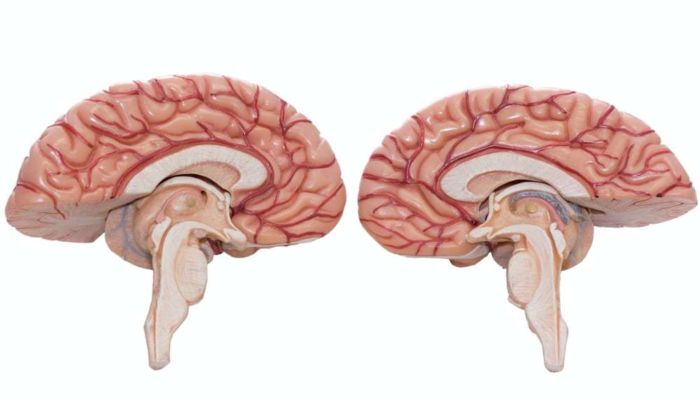At NewSouth NeuroSpine, we’re focused on giving you the most professional and effective treatment for spinal issues causing nerve pain and related issues. But, even if it’s not exactly the research we do, when the chance for us to help build awareness that can help change lives, we’re super excited to do so…
With that, let us tell you about Brain Awareness Week, which, this year, is March 16-22.
By building awareness, we can extend and help fund future research. The brain and all its complexities affect everything in our livelihood and our relationships. While NS2 doesn’t treat the main diseases associated with the brain (and Brain Awareness Week), the conditions we do treat also fall under the umbrella of the brain and nervous system. Understanding better the function of the system helps everyone.
So, allow us to introduce you to the mighty brain, and give a brief overview of the conditions Brain Awareness Week is helping to change.
The human brain serves as the command center for our nervous system. Every second, the neurons in our brain are making 500 trillion connections, allowing us to have mental processes that affect our thinking, reasoning, perception, emotions, sensations, learning, and memory. It controls how we think and how we fee. Even our appetite, our self-esteem, our creativity, personality, decision-making, and even our morality is formed within our brain.
This is why brain research is so necessary. We need to be able to solve the various problems that develop in the brain.
What conditions do we hope to change with more research:
Alzheimer’s Disease: This horrible degenerative brain disease affects a person’s memory and mental function. 5.8 million Americans suffered from Alzheimer’s disease in 2019, up from 5.5 million just a couple years earlier.
While there is currently medication that may help reduce the speed at which the brain cells die, more research is needed in order to prevent the inevitable and fatal outcome for those diagnosed with Alzheimer's.
Alzheimer’s disease may begin to reveal itself through mild confusion with an inability to organize your thoughts and remember things clearly. Typically family members and friends are the first to recognize that something isn’t quite right. Those with Alzheimer’s disease have difficulty participating in a conversation because they are unable to fully comprehend what’s being said by others or because they cannot decide how to share their own thoughts. They also regularly misplace their possessions, get lost in a familiar place, forget appointments, or repeat statements and questions in the same conversation without recalling the response that was given just moments ago. It can also affect someone’s ability to reason and think clearly, make plans, or even remember to do seemingly simple tasks.
Alzheimer’s is a very serious, devastating disease for loved ones to observe in another family member or friend because eventually, the disease causes the brain to shrink resulting in extreme personality changes and a loss of elementary skills and motor functions. Since 2000, deaths from Alzheimer’s disease have risen by 89%.
Parkinson’s Disease: Parkinson’s disease is another devastating brain disease that deserves more focused research to develop a cure. When the neurons in the brain begin to die, a chemical called dopamine is not released. As the loss of dopamine increases, the brain function begins to decrease often leading to symptoms of Parkinson’s disease.
Parkinson’s is associated with hand tremors but other symptoms include slower movements, shorter steps, rigid muscles, impaired balance, and changes in writing and speech. Inflection may be difficult, as well as forming words that result in slowed or slurred speech. Parkinson’s disease affects 60,000 Americans each year and more than 10 million people in the world are living with Parkinson’s. The exact cause, as well as the cure, has yet to be discovered.
Mental Illness and Psychiatric Disorders: Each year, one in five adults will be diagnosed with a mental illness. Alarmingly, 20% of children have experienced, or are currently experiencing, some form of mental illness. These mental disorders include schizophrenia, bipolar disorder, major depressive disorder, and anxiety disorders such as post-traumatic stress disorder (PTSD) and obsessive-compulsive disorder (OCD).
Recently, scientists have discovered the link between mental illness and brain chemistry and structure. This blurs the lines significantly between other, once separated, neurological disorders and mental illness.
To learn more about the origins of Brain Awareness Week and the wonderful organization behind it, visit https://www.brainawareness.org/
And Please, if you feel any pain in your limbs, neck, or back, or just don’t feel quite right, don’t hesitate to schedule an appointment with a trusted physician of NewSouth NeuroSpine. Contact NewSouth NeuroSpine today.






